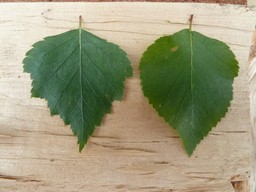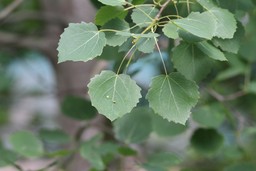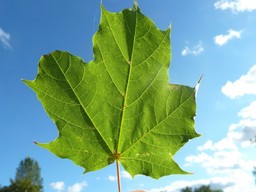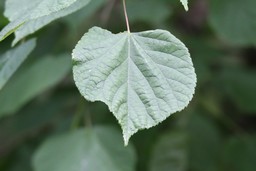3. Broadleaf trees
Birch is a broadleaf tree
Birch 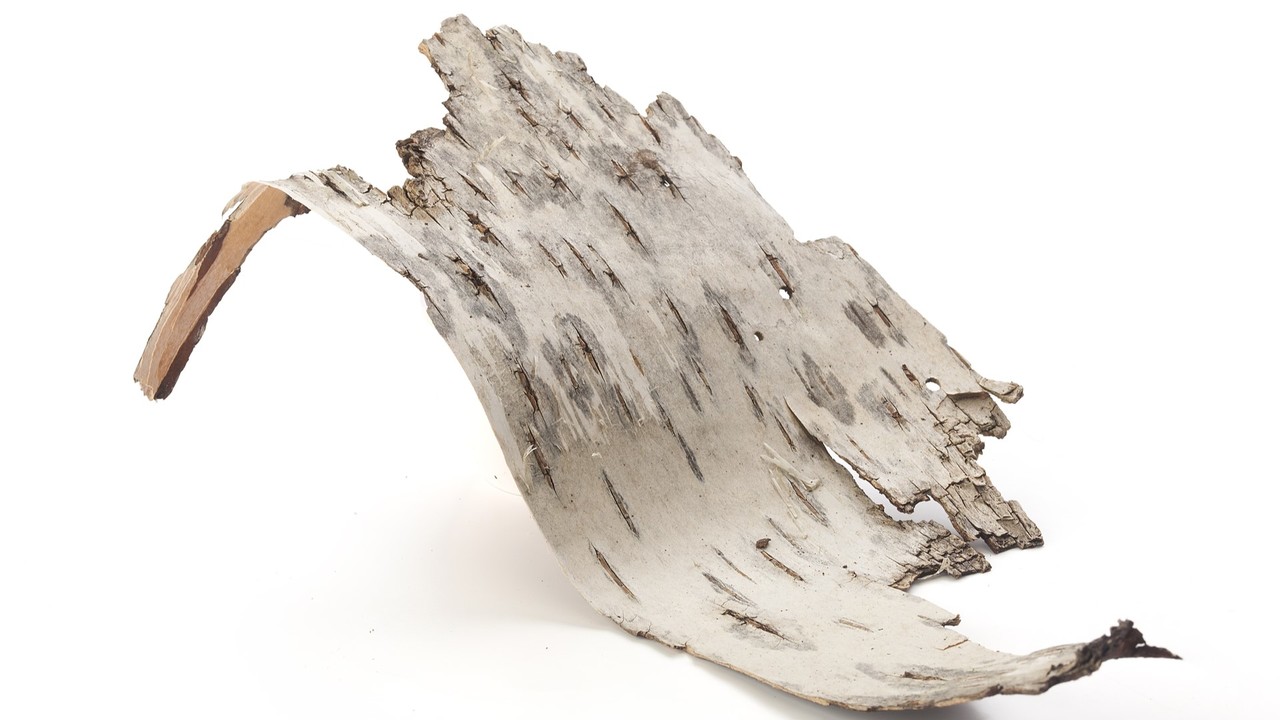 is a common broadleaf tree. It is easy to recognize from its white trunk.
is a common broadleaf tree. It is easy to recognize from its white trunk.
The bark of a birch tree is mostly white in color, but it can grow rough and black as the tree ages. Birch bark has been widely used by humans as kindling and to produce tools and other objects.
Birch wood is strong, tough and bends easily. This is why it is very suitable for making furniture, flooring and plywood.
Birch trees grow in all kinds of locations. They are one of the most common tree species in Northern Europe.
There are two types of birch trees. The leaves of the silver birch have a triangle-like shape. The leaves of the white birch have a round shape.
The leaf is attached to a branch by a thin stalk. The "lines" you can see running through the leaf are actually leaf veins. Water travels through these veins into the cells of the leaf.
 is a common broadleaf tree. It is easy to recognize from its white trunk.
is a common broadleaf tree. It is easy to recognize from its white trunk. The bark of a birch tree is mostly white in color, but it can grow rough and black as the tree ages. Birch bark has been widely used by humans as kindling and to produce tools and other objects.
Birch wood is strong, tough and bends easily. This is why it is very suitable for making furniture, flooring and plywood.
Birch trees grow in all kinds of locations. They are one of the most common tree species in Northern Europe.
There are two types of birch trees. The leaves of the silver birch have a triangle-like shape. The leaves of the white birch have a round shape.
The leaf is attached to a branch by a thin stalk. The "lines" you can see running through the leaf are actually leaf veins. Water travels through these veins into the cells of the leaf.
Birch reproduction
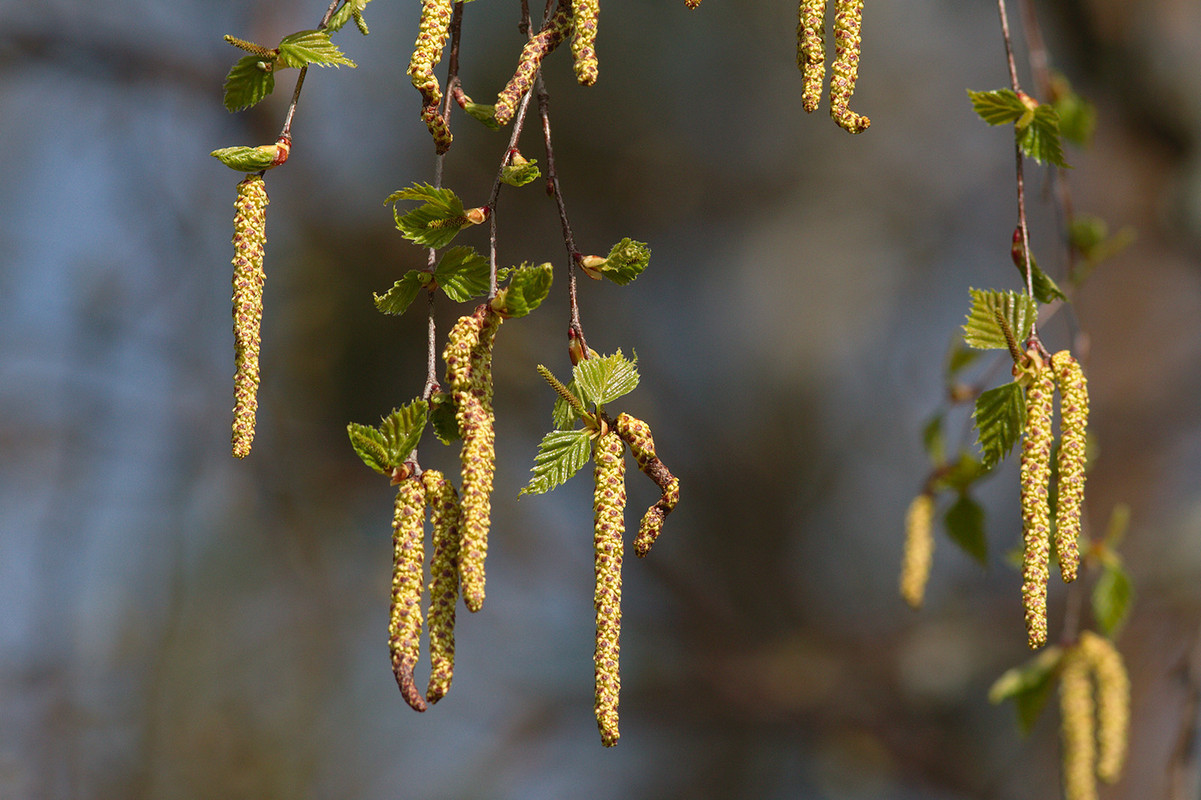 Like coniferous trees, broadleaf trees also reproduce by producing seeds. First, the tree's inflorescence needs to be pollinated. The birch tree's staminate catkin releases pollen, which is distributed almost everywhere with the help of the wind.
Like coniferous trees, broadleaf trees also reproduce by producing seeds. First, the tree's inflorescence needs to be pollinated. The birch tree's staminate catkin releases pollen, which is distributed almost everywhere with the help of the wind. Some of the pollen reaches the pistillate flowers of other birch trees. When this occurs, the pollen fertilizes the flower, and the seed begins to develop. During the autumn, the seeds fall into the ground.
Birch trees grow their staminate catkins and pistillate flowers during the spring, at the same time as the trees grow their new leaves.
Broadleaf trees
Everyman's rights
Everyman's rights in a nutshell
You can
- freely move in forests and meadows by foot, skis or bike.
- temporarily spend time (i.e. camp) in areas where moving is also allowed.
- collect natural berries, fungi and flowers.
- fish with a hook and line.
- move in waters by swimming or boat.
You cannot
- cause disturbance to others.
- disturb birds' nests or offspring.
- disturb the animals of the forest.
- fell down or damage growing trees.
- collect dead trees or moss without permission.
- make a fire on another person's property.
- disturb other people by camping near their houses or buildings.
- litter.
- drive a motor vehicle without the land owner's permission.
- fish or hunt without proper permits.
Terminology
| Term | Explanation |
|---|---|
| pollination | A process where pollen is transported from one flower to another. |
| fertilization | A process where the nuclei of the pollen grain and a flower's egg cell are combined. |
| everyman's rights | A Finnish law that makes it possible for people to move freely in the forest and collect berries, for example. |

